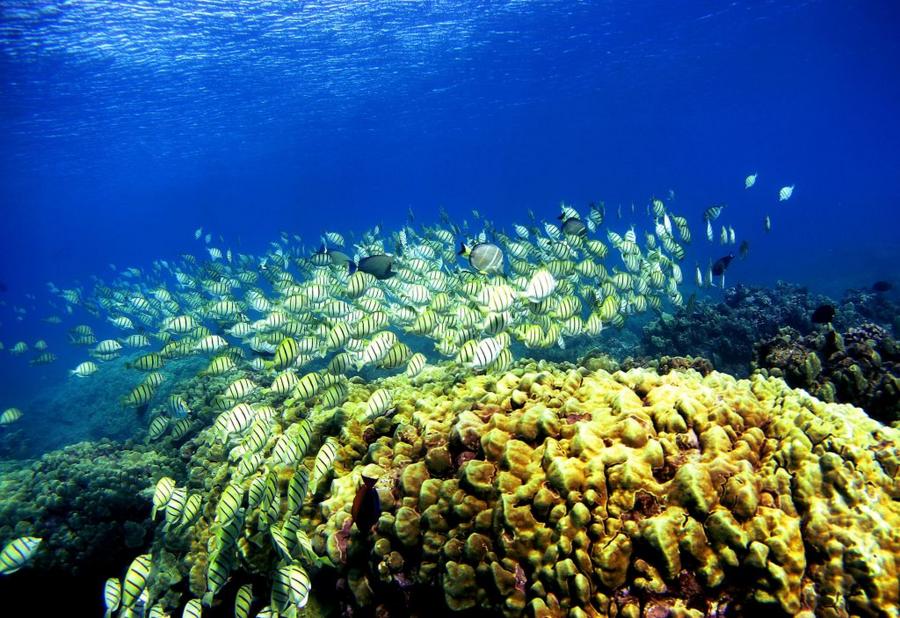One of the more unfortunate and potentially catastrophic side-effects of humans on planet Earth has been the loss of coral reef systems. Far from merely being decorative additions to the undersea realm, they're actually crucial for maintaining the complex ecosystems that exist there, and there are various theories on how to correct the problem of disappearing coral reefs out there. Billionaire John Paul DeJoria, founder of Paul Mitchell and Patron, is contributing to one such effort, funding a $1 million project to create new coral reefs artificially.
DeJoria has teamed up with Dr. Deborah Brosnan of the Ocean Shot Project, who's been studying the subject of coral reefs for over 25 years. She tells CNBC:
"Coral reefs are at risk. We have lost more than a third of coral reefs already. And the prognosis for losing more is high. So right now today, we lose more coral reefs in a day than we can restore in a decade."

Donald Miralle/Getty Images
About 25 percent of all undersea life is supported by coral reefs. And they can help land-dwellers too, breaking the potentially erosive energy of ocean waves and preserving coastlines and property. And Brosnan's project is to create new artificial reefs that are more resilient to climate change than the real thing.
In the fall of last year, Brosnan enlisted the financial backing of DeJoria to install artificial reefs made from calcium carbonate and equipped with nursery-grown coral off Antigua and Barbuda. DeJoria seems to see it as a worthwhile expense:
"It's my way of paying a little bit of rent for being here on the planet Earth. I'm doing a billion-dollar project of fine beautiful homes. Incredible. It's a big project. The people, they are very wealthy people, and they love the fact that everybody's getting a good job, making good money, and that we're bringing the reefs back."
So the project would seem to have both environmental and economic impacts, and the pair are hoping to expand to other areas throughout the world. They're planning a production facility on Barbuda where they can mass-produce the artificial reefs, which will of course require a much greater financial investment. Said Brosnan:
"This is very doable. This is doable in the region, it is doable globally. What we need is the investment in the technology, the investment in the deployment, and the recognition that there is a return on that investment in terms of our own health, our own safety on the coast, and the livelihood of at least a billion people on the planet."
/2014/03/GettyImages-131452582.jpg)
/2018/01/John-Paul-DeJoria.jpg)
/2019/02/GettyImages-148203941-e1549240428198.jpg)
/2020/02/GettyImages-983824484.jpg)
/2019/06/GettyImages-1060106284.jpg)
/2020/10/Screen-Shot-2020-10-14-at-12.12.27-PM.png)
/2020/07/mlp.jpg)
/2010/01/Deryck-Whibley.jpg)
/2020/07/jl.jpg)
:strip_exif()/2020/06/taylor.png)
/2010/01/GettyImages-183679600.jpg)
/2022/10/Anne-Murray.jpg)
/2014/09/Kim-Delaney.jpg)
/2009/11/Tim-Duncan.jpg)
/2023/01/lance-armstrong.jpg)
/2021/04/Sara-Gilbert.jpg)
/2025/03/Kelli-Ferrell.jpg)
/2010/05/Jaleel-White.jpg)
/2013/02/Walt-Frazier.jpg)
/2011/04/Mike-Fisher.jpg)
/2023/05/brian-den.png)
/2021/03/Morgan-Wallen2.jpg)
/2020/03/kid-rock.jpg)